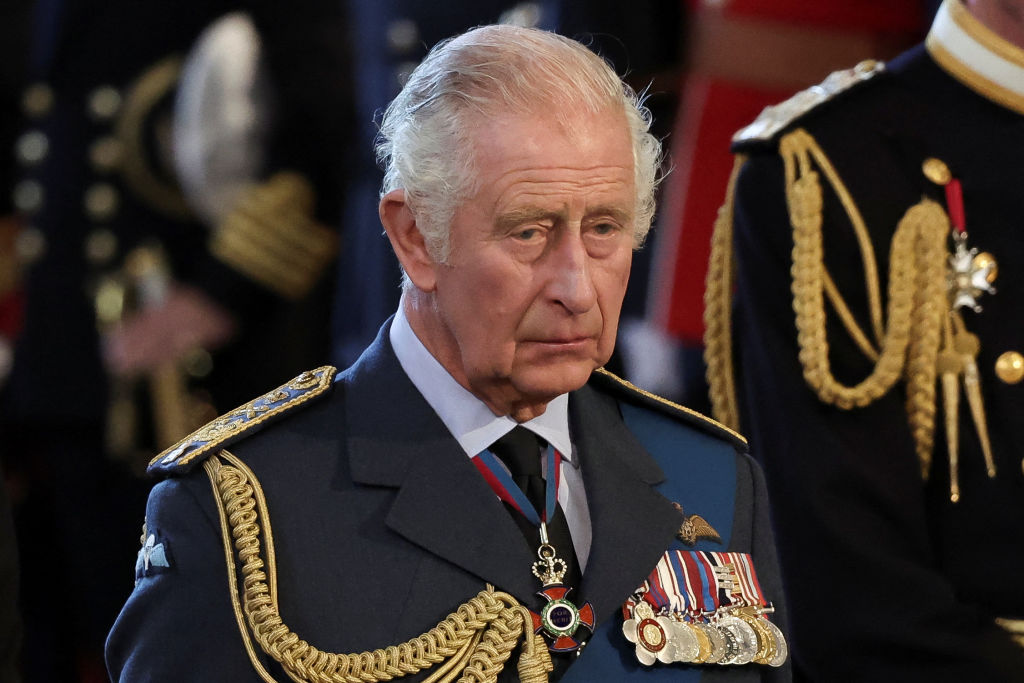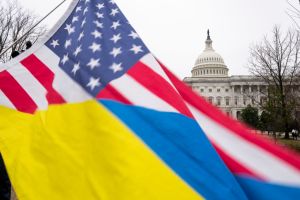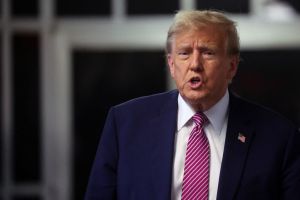September 8, 2022 will go down in history as the date we lost Her Majesty Elizabeth II, Queen of the United Kingdom of Great Britain and Northern Ireland, Canada, Australia, New Zealand, and of her other realms and territories, Head of the Commonwealth, Defender of the Faith. Her son Charles, Prince of Wales, has now succeeded her as King Charles III. For the first time in this writer’s life, the anthem is to be sung as “God Save the King.”
To write about the accomplishments of the sole public figure remaining from one’s earliest memories is a daunting task. The Queen in her turn inherited an institution that is difficult for Americans — especially of a conservative stripe — to understand. Used as we are to a head of state who routinely vetoes measures passed by Congress, it’s hard to conceive of a seemingly powerful figure who gives the royal assent to measures she might disapprove of — such as the act bringing abortion to the UK in 1967.
While understandable, such confusion misunderstands that the monarch is in fact the least free individual in the United Kingdom. When Henry VIII seized the monasteries and distributed them among his supporters, he unwittingly created an oligarchy; the grandsons of his cronies would murder Charles I, who attempted to deny their supremacy. Indeed, among the high crimes that cost Charles his head were not only insisting upon the retention of bishops in the Church of England, negotiating with Rome for reunion, and upholding his age-old prerogatives, but trying to defend the right of his lowest-born subjects to graze their animals on common land.
Although his crypto-Catholic son Charles II was restored as a result of the Cromwell regime’s excesses, it was at the behest of that same oligarchy. His considerable diplomatic skills were stretched almost to the limit maintaining the fiction that his roles were unchanged from his father’s day, while keeping the real masters of the realm and their parliament sufficiently satisfied so as to tolerate his continued rule. His openly Catholic brother, James II, lacked those skills, and was replaced with his more pliable son-in-law and nephew, William III and his daughter Mary II.
Since that time, in 1688, Parliament and whoever controls it have been supreme. The monarch holds office quite literally at their pleasure.
George III, who ruled from 1760-1821, was the first of his line to attempt to restore the balance of power that had prevailed under Queen Anne. His attempt at reform was defeated politically by the American Revolution — our first civil war — in which the colonies successfully took complete power for themselves. As Eric Nelson puts it so well, when the smoke cleared, “on one side of the Ocean there would be a Monarchy without a King, and on the other, a King without a Monarchy.”
British governance was as altered by that conflict as was ours. The result was a process that created a bifurcation in government at every level in Britain and its daughter countries between the ceremonial and effective elements: Sovereign versus Prime Minister, House of Lords versus House of Commons, Lord Lieutenant versus County Council Chairman, Lord Mayor or Mayor versus Head of Council. This process was complete at every level when Elizabeth II ascended the throne seven decades ago. Even in the purely ceremonial sphere, she — like her father and grandfather — had to act on the advice of her government. In the accepted historical narrative, this was the culmination of “democracy.”
Nevertheless, the role of the ceremonial side of government in Britain and the Commonwealth remains very important. It created a sphere wherein those elements of life that were not considered political — culture, religion, agriculture, the arts, the military, natural conservation, historic preservation, and so on — could be nurtured as above the political fray. Since the 1960s, in Britain as throughout the West, this area was and is continually pressured. Throughout it all, though, the Queen remained a witness to unchanging values and virtues. She could not stop the blows, but she could and did soften them. Now she is gone — the last grownup, as it were.
And what of King Charles III? In a January 21, 1993, letter he wrote:
For the past 15 years I have been entirely motivated by a desperate desire to put the “Great” back into Great Britain. Everything I have tried to do — all the projects, speeches, schemes, etc. — have been with this end in mind. And none of it has worked, as you can see too obviously! In order to put the “Great” back I have always felt it was vital to bring people together, and I began to realize that the one advantage my position has over anyone else’s is that I can act as a catalyst to help produce a better and more balanced response to various problems. I have no “political” agenda — only a desire to see people achieve their potential; to be decently housed in a decent, civilized environment that respects the cultural and vernacular character of the nation; to see this country’s real talents (especially inventiveness and engineering skills) put to best use in the best interests of the country and the world (at present they are being disgracefully wasted through lack of co-ordination and strategic thinking); to retain and value the infrastructure and cultural integrity of rural communities (where they still exist) because of the vital role they play in the very framework of the nation and the care and management of the countryside; to value and nurture the highest standards of military integrity and professionalism, as displayed by our armed forces, because of the role they play as an insurance scheme in case of disaster; and to value and retain our uniquely special broadcasting standards which are renowned throughout the world. The final point is that I want to role back some of the more ludicrous frontiers of the 60s in terms of education, architecture, art, music, and literature, not to mention agriculture! Having read this through, no wonder they want to destroy me, or get rid of me…!
His success at such efforts was limited by resistance from the establishment at every front. It remains to be seen how much of this agenda will or can survive his elevation to the throne, but one can wish him luck.
What has all of this to teach Americans? Like Britain, our system — entirely political from the outset — nevertheless had an apolitical space which was guarded by a shared American civic religion. It struck this writer in January 2020 that Donald Trump’s speech at Mount Rushmore, which aroused such enthusiasm in his fans and ire in his foes, could have been uttered by any politician of either party when I was a boy.
If a king without an effective monarchy faces real difficulties, the subjects of a monarchy without a king — or any other common unifying principle, religious or secular — may face worse. This may account for the popularity among Catholic Americans in recent years of Blessed Emperor Karl of Austria, to whom, as of this writing, twenty shrines have sprung up across the country. The idea of a leader willing to sacrifice his life for his people may be familiar to King Charles III’s subjects, but it is an exceedingly novel idea to us.


















